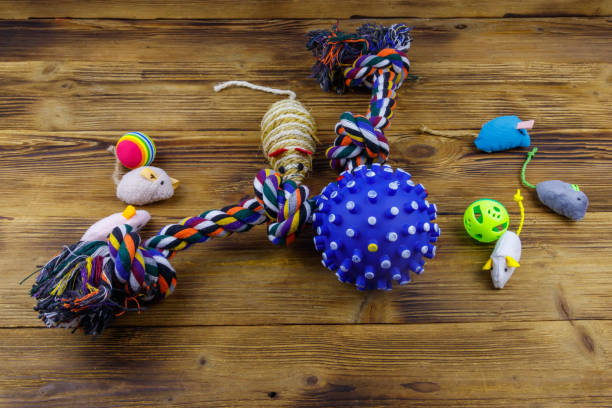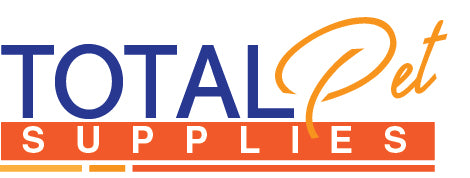
The Ultimate Guide to Dog Pet Toys: Keep Your Pup Happy and Healthy
Share
Dog pet toys are more than just a fun way to entertain your furry friend—they play a vital role in your dog's physical health, mental stimulation, and emotional well-being. Whether you have a new puppy, an energetic adolescent, or a senior dog who still enjoys a gentle play session, choosing the right pet toys is essential.
In this guide, we’ll walk you through the benefits of dog pet toys, the best types for different needs, safety tips, and how to choose the right toys for your pet’s age, breed, and temperament.
Why Are Dog Pet Toys Important?
Toys aren't just a luxury for your dog—they're a necessity. Here's why they matter so much:
1. Mental Stimulation
Dogs are intelligent creatures. Without proper stimulation, they can become bored, anxious, and even destructive. Puzzle toys, treat dispensers, and interactive toys challenge your dog’s brain and keep them engaged.
2. Physical Exercise
Chew toys, fetch balls, and tug ropes encourage physical movement. Active play supports a healthy weight, boosts cardiovascular health, and helps prevent obesity-related issues.
3. Behavioural Training
Dog pet toys can support positive behaviour. Chew toys, for example, redirect destructive chewing away from furniture and shoes. Toys also help relieve separation anxiety when used strategically.
4. Emotional Well-Being
Just like humans, dogs feel stress and boredom. A comforting squeaky toy or plush companion can reduce anxiety and provide security—especially for puppies.
Top Types of Dog Pet Toys and Their Benefits
Different toys serve different purposes. Here's a breakdown of the most popular types of dog pet toys and how they benefit your pup.
Chew Toys
Best for: Teething puppies, aggressive chewers, and anxious dogs.
Chew toys like rubber bones, dental chews, and textured rings are excellent for dental health. They satisfy your dog's natural urge to chew while cleaning teeth and massaging gums.
Plush Toys
Best for: Puppies, small breeds, and gentle chewers.
Soft and comforting, plush toys are often a dog's first "friend." Many come with squeakers or crinkly material for added stimulation. Always supervise plush toy use to avoid ingestion of stuffing or squeakers.
Tug Toys
Best for: Bonding and interactive play.
Tug-of-war ropes and durable tug rings promote interaction between you and your dog. They help build trust, release pent-up energy, and reinforce training commands like “drop it” or “release.”
Puzzle and Treat-Dispensing Pet Toys
Best for: Mental stimulation and reducing boredom.
These toys challenge your dog to problem-solve to release a treat. They can extend mealtime, slow down fast eaters, and provide hours of brain-boosting fun.
Fetch Toys
Best for: High-energy dogs and outdoor play.
Balls, frisbees, and launcher toys offer endless fun. They help improve coordination and offer an excellent outlet for exercise.
Squeaky Toys
Best for: Stimulating play and auditory feedback.
Squeaky toys appeal to your dog’s instinct to hunt. The sound activates curiosity and keeps your pet entertained. Make sure squeaky toys are sturdy enough to withstand repeated chewing.
How to Choose the Right Dog Pet Toys
Choosing the right dog toy depends on several factors. Here's what to consider:
1. Your Dog’s Age
-
Puppies: Need teething toys that are soft yet durable.
-
Adults: Require a mix of mental and physical toys like tug ropes and puzzles.
-
Seniors: Benefit from softer toys that are easier on ageing teeth.
2. Your Dog’s Size
Always match the toy size to your dog’s size. A toy that’s too small can be a choking hazard, while a toy that’s too large may not be fun or usable for a small breed.
3. Chewing Strength
Aggressive chewers need ultra-durable toys made from rubber or hard nylon. Soft plush toys will only last minutes with power chewers.
4. Temperament and Play Style
Observe how your dog plays:
-
Do they love to chase and retrieve?
-
Do they carry toys around like treasures?
-
Are they problem solvers who love a challenge?
Tailor the toy selection based on your dog’s personality.
Safety Tips for Dog Pet Toys
Keeping your dog safe is just as important as keeping them entertained.
Regularly Inspect Toys
Check for wear and tear. Discard any toys with broken parts, loose strings, or damaged squeakers to prevent choking or ingestion.
Use Age-Appropriate Toys
Avoid toys with small parts or sharp edges, especially for puppies. Choose toys that are recommended for your dog’s age group.
Supervise When Necessary
While some toys are safe for solo play, others—especially plush and squeaky toys—should only be given when supervised.
Avoid Toxic Materials
Stick with pet-safe, non-toxic materials. Look for BPA-free rubber, food-grade silicone, and natural fibers when possible.
Our Top Picks for Pet Toys at Total Pet Supplies
At Total Pet Supplies, we understand the needs of Aussie dogs and their humans. That’s why we stock a wide range of high-quality dog pet toys designed for all breeds, sizes, and personalities.
Popular Options on Our Site:
-
Natural Rubber Chew Rings – Durable and satisfying for heavy chewers.
-
Interactive Treat Balls – Keeps your dog busy and mentally stimulated.
-
Soft Squeaky Koala Plush – An Aussie favourite for cuddly comfort.
-
Rope Tug & Toss Combo – Perfect for dual-purpose play.
All our dog pet toys are tested for safety and durability. Plus, we offer fast shipping across Australia.
When to Replace Dog Pet Toys
Even the best toys wear out over time. Here’s when to toss and replace them:
-
Chew Toys: Replace if cracked, splintered, or missing chunks.
-
Plush Toys: Replace when the stuffing or squeaker is exposed.
-
Rope Toys: Replace if frayed or shedding fibres.
-
Rubber Balls: Replace if they lose their bounce or begin to degrade.
Regular replacement keeps play safe and fun for your pet.
Final Thoughts on Pet Toys: Make Playtime Count
Dog pet toys are a crucial part of a healthy, balanced lifestyle for your furry friend. From mental enrichment to dental hygiene, the right toys can truly transform your dog’s day.
At Total Pet Supplies, we’re passionate about helping you find the best products for your pet. Explore our collection of dog pet toys to give your pup the quality playtime they deserve.
FAQs About Dog Pet Toys
What are the best toys for aggressive chewers?
Look for toys made from reinforced rubber or nylon, such as Nylabone-style toys. Avoid plush or squeaky toys for heavy chewers.
How many toys should my dog have?
It’s good to rotate 3–5 different types of toys each week to maintain novelty and engagement.
Can toys help with my dog’s anxiety?
Yes! Chew toys, plush toys, and puzzle feeders can all provide emotional comfort and mental distraction during stressful situations.
